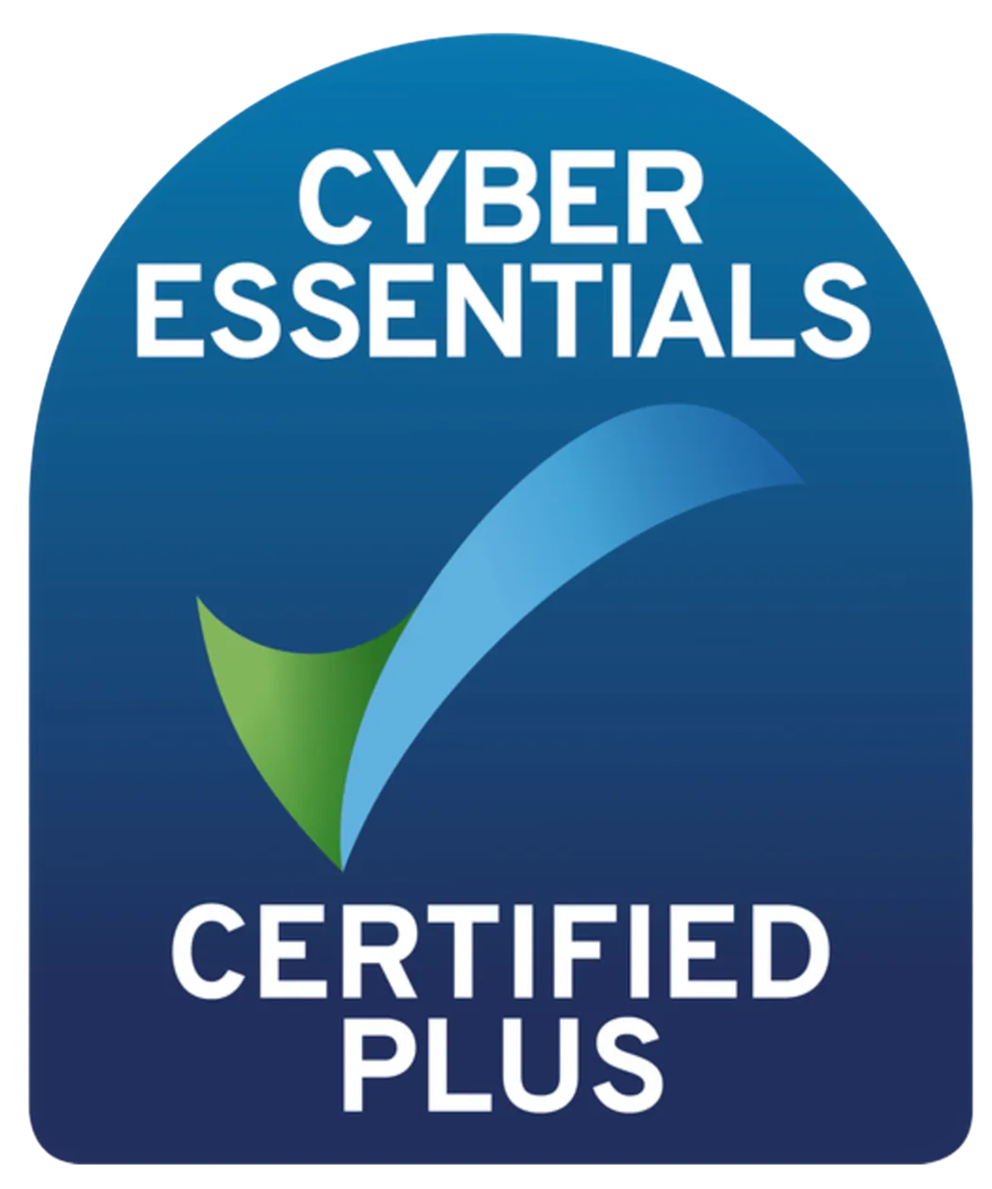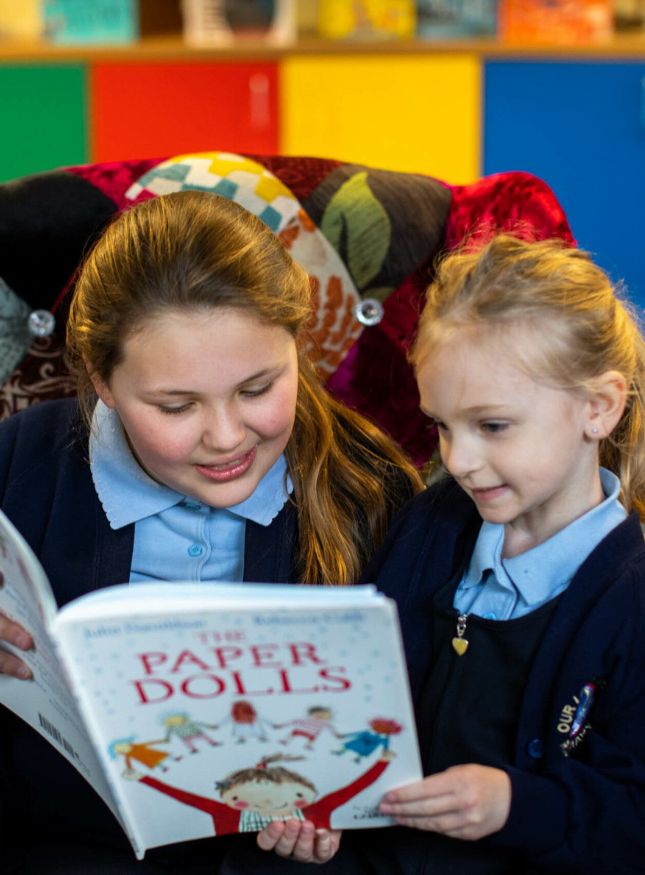Click on the sections below to explore and learn more about the EYFS curriculum at Our Lady & St Paul’s.
At Mary’s we have both a Nursery and Reception class.
Teachers
- Mrs C Lockett – Nursery Teacher
- Miss K Lloyd – Reception Teacher
Availability
For more information about availability of places in our Nursery and Reception classes, please contact the school office here.
Welcome to Our Lady and St Paul’s Roman Catholic Primary School! As the Early Years Leader, I am delighted to extend a warm welcome to you and your family. At our school, inspired by the love of Jesus Christ and the values of our Catholic faith, we embrace each child as a unique individual, full of potential, and part of a caring, faith-filled community.
As a school dedicated to Our Lady, the Mother of God, we believe strongly in the power of love, family, and togetherness. We welcome every child with open arms, following the words of Jesus, who said, “Let the little children come to me. Do not stop them!” With this spirit, we seek to identify and nurture the unique gifts and talents of each child, supporting their development academically, socially, and spiritually.
Our Mission Statement—’Love, Learn, and Live as friends of Jesus Christ’—guides everything we do in Early Years. We are committed to laying a strong foundation for lifelong learning. Our curriculum is designed to inspire curiosity, creativity, and a love for discovery, ensuring that each child is given the best possible start in their educational journey. By providing a stimulating and supportive environment, we help our youngest learners feel safe, happy, and valued as they grow and thrive.
We also understand that education is a collaborative effort, and we are deeply rooted in our community. Our partnership with parents, carers, and our parish community helps to create a holistic and enriching experience for every child. We work closely with Our Lady and St Paul’s parish, as well as the families of our pupils, to ensure that our children are supported in all aspects of their development.
Open communication and active involvement are key to your child’s success. We encourage parents and carers to engage with school life, working with us to help each child reach their fullest potential. Together, we can nurture children who are confident, capable, and ready to embrace the future.
Thank you for considering Our Lady and St Paul’s Roman Catholic Primary School for your child’s education. We look forward to welcoming you and your family and embarking on this wonderful journey of love, learning, and service together!
Holidays
Please inform us in writing of any term-time holidays. Please note that fees will still be payable for Nursery children.
The EYFS School Day
The EYFS School Day
Doors Open for Reception at 8.40am and are closed at 8.45am.
Nursery Am Session 9.00am – 12.00pm
Nursery Pm Session 12.00pm – 3.00pm
Nursery Full time – 9.00am – 3.00pm
EYFS Lunchtime 11.30 – 12.30
Reception end of day 3.15pm
School Uniform
Children are required to wear school uniform and the co-operation of parents is sought in maintaining high standards of dress.
It is of great help if all items of clothing are clearly marked with your child’s name.
EYFS Uniform
- Light blue polo shirt
- Navy blue round necked sweatshirt or cardigan
- Black jogging bottoms
- Black trainers
PE Uniform
- Children do not get changed for PE as they are already wearing jogging bottoms. If your child wears black school shoes rather than trainers, please send them in with a pair of black pumps to change into on PE days.
Jewellery
- No jewelry is to be worn, including earrings. This is for the protection of your child’s health and safety.
What your child needs for school
- Wellies – to remain in school- we will play out in all weathers (both wellies clearly labelled )
- Waterproof coat with hood- to be left in school (optional )
- School Reading Folder –provided by school.
- A sunhat in the warmer months
- Sun cream should be applied before school on hot days. If you wish to send in sun cream, children must be able to apply this independently.
- Hats and gloves in cold weather
- A water bottle, brought in each day filled with WATER, not juice please.
*Please ensure all items of clothing are labelled with your child’s name
Nursery
- Children who attend a full day session in our Nursery will need to bring a packed lunch, clearly marked with their name, or choose a school dinner. This would need to be paid using School Grid.
- We are a NUT FREE SCHOOL and have children with severe nut allergies – please do not send in any snacks that contain nuts e.g. Nutella, Snickers, pesto etc.
- We advise that all small things such as grapes are chopped up to prevent choking.
Reception
- All Reception children are entitled to a free school lunch.
- If your child is having a school dinner, please ensure you inform us if they have any allergies. It would be helpful if they could practice using a knife and fork at home.
- If your child is having a packed lunch, they will need a labelled lunch box, which will be kept in the classroom until lunchtime.
- Your children will be supported by Early Years staff and lunch time supervisors throughout dinner times.
At Our Lady and St Paul’s Catholic Primary School, we adhere to the Early Years Foundation Stage (EYFS) statutory framework and incorporate the principles of Development Matters. These guidelines ensure our youngest learners receive a high-quality, play-based education that fosters their development and prepares them for future learning.
Through a balanced approach, we nurture each child’s heart, mind, and spirit, staying true to our mission.
Click on the Following Links for More Information
National Framework
In the Early Years Foundation Stage (EYFS), assessment is a critical component to ensure that children receive the best possible start to their education. Nationally, the assessment framework for EYFS is designed to support children’s development and learning by providing a clear structure for measuring progress and identifying areas where additional support may be needed.
The EYFS Profile
The primary national assessment tool for children in the EYFS is the EYFS Profile. The EYFS Profile is completed in the final term of the year in which the child turns five, typically at the end of the Reception year. This assessment summarises and describes children’s attainment at the end of the EYFS.
Areas of Learning
The EYFS Profile assesses children’s achievements in the following areas:
- Communication and Language
- Listening and Attention
- Understanding
- Speaking
- Physical Development
- Moving and Handling
- Health and Self-Care
- Personal, Social, and Emotional Development
- Self-Confidence and Self-Awareness
- Managing Feelings and Behaviour
- Making Relationships
- Literacy
- Reading
- Writing
- Mathematics
- Numbers
- Shape, Space, and Measures
- Understanding the World
- People and Communities
- The World
- Technology
- Expressive Arts and Design
- Exploring and Using Media and Materials
- Being Imaginative
Early Learning Goals (ELGs)
For each area of learning, there are specific Early Learning Goals (ELGs) which set out the expected level of development that most children should reach by the end of the EYFS. Teachers assess each child against these goals, determining whether they are:
- Emerging: not yet reaching the expected level.
- Expected: meeting the expected level.
- Exceeding: surpassing the expected level.
The Reception Baseline Assessment (RBA)
Starting in the academic year 2021/2022, the Reception Baseline Assessment (RBA) was introduced as a statutory assessment for all children in Reception. This assessment takes place within the first six weeks of children starting school and serves as a baseline to measure the progress children make from the start of Reception to the end of Key Stage 2.
Key Features of the RBA
- Focus Areas: The RBA focuses on early literacy, communication, and mathematics skills.
- Format: It is a short, interactive assessment carried out one-on-one with a teacher or practitioner.
- Purpose: The RBA is not intended to provide a comprehensive picture of a child’s abilities but to establish a starting point for measuring progress throughout primary school.
- Non-Obtrusive: Designed to be a low-pressure assessment, it fits seamlessly into the child’s normal school day.
The results of the RBA are used to create a baseline measure for each child, which will help track their progress across their primary education journey. These results are not shared with parents or used to label or track individual children within the school.
Observational Assessment
A key aspect of EYFS assessment is observational assessment. Our staff observe children as they act and interact in their play, everyday activities, and planned activities, and they use these observations to understand each child’s development and learning needs. Observational assessment is continuous and forms the basis of the formative assessment process.
Formative Assessment
Formative assessment is integral to the EYFS. It involves practitioners using their observations to inform planning and to create a responsive learning environment. This ongoing process helps to tailor the learning experiences to meet the individual needs of each child, supporting their development in all areas of learning.
Summative Assessment
In addition to the formative assessments, the EYFS Profile provides a summative assessment at the end of the Reception year. This summative assessment provides parents, practitioners, and teachers with a well-rounded picture of a child’s knowledge, understanding, and abilities as they prepare to transition into Key Stage 1 (KS1).
Reporting to Parents
Parents are provided with a written summary of their child’s attainment against the ELGs, along with commentary on the characteristics of effective learning. This report helps parents understand how their child is progressing and provides them with insights into how they can support their child’s learning at home.
Implementation in Our School
At our school, we are committed to implementing the EYFS assessment framework effectively to support every child’s learning journey. Our approach includes:
- Regular Observations: We conduct regular observations to capture children’s achievements and inform our planning.
- Parental Involvement: We actively involve parents in the assessment process through regular updates, meetings, and sharing of the EYFS Profile.
- Professional Development: Our staff engage in continuous professional development to ensure they are skilled in conducting accurate and meaningful assessments.
- Inclusive Practices: We tailor our assessment practices to ensure they are inclusive and cater to the diverse needs of all our children.
By adhering to the national EYFS assessment framework, including the RBA, and implementing best practices within our school, we strive to provide a supportive and enriching learning environment that promotes the holistic development of every child.
General Early Years Resources
- BBC Tiny Happy People
- Offers a wide range of activities and tips to support language development.
- Hungry Little Minds
- Provides ideas and activities to help parents support their child’s learning and development.
- National Literacy Trust
- Offers resources and advice to support children’s literacy development from birth to age 11.
Parenting and Family Support
- Family Lives
- Provides parenting advice, support forums, and helplines for parents and caregivers.
- Action for Children
- Offers practical advice and support for parents on a range of topics, including early childhood development.
- NHS Start4Life
- Offers health advice and tips for pregnancy, birth, and early years.
Educational Activities and Games
- PhonicsPlay
- Provides phonics games and resources to support children in learning to read.
- Topmarks
- Offers a variety of educational games and resources covering maths, literacy, and more.
- Twinkl
- Provides a vast array of printable resources and activities for early years education.
Online Storybooks and Reading
- Oxford Owl
- Offers free eBooks and reading activities for children, as well as advice for parents on supporting reading at home.
- BookTrust
- Provides book recommendations, reading tips, and activities to encourage a love of reading.
Wellbeing and Mental Health
- Young Minds
- Offers advice and resources to support children’s mental health and wellbeing.
- MindEd for Families
- Provides information and advice to support parents and caregivers in promoting children’s mental health.
Special Educational Needs and Disabilities (SEND)
- Contact
- Provides support and advice for families with children who have special educational needs or disabilities.
- The Sensory Projects
- Offers resources and ideas for sensory play and learning, particularly for children with SEND.
Creative Play and Activities
- The Imagination Tree
- Features creative play ideas and activities to encourage imaginative play and development.
- Learning4Kids
- Provides a range of fun and educational activities to support early childhood learning.
Ways in which to prepare your child:
*Please note, if your child cannot do all of the following, please do not worry, just let us know.
- Going to the toilet, wiping themselves, flushing the toilet and washing/drying their hands independently
- Putting coats on and taking them off – fastening zips and buttons
- Recognising their own name
- Singing Nursery Rhymes
- Rhyming words
- Reading/sharing books and discussing characters/setting/main events
- Cutting skills
- Capital Letters only at start of name
- Encourage your child to walk to into school
- Please talk about school in a positive way
- Practise holding pens/pencils/crayons when mark-making
- Taking turns when playing a game or with toys
- Being able to use language to communicate their needs
Click here to explore Starting Reception, a helpful website for parents and carers preparing their children for the transition into primary school.



